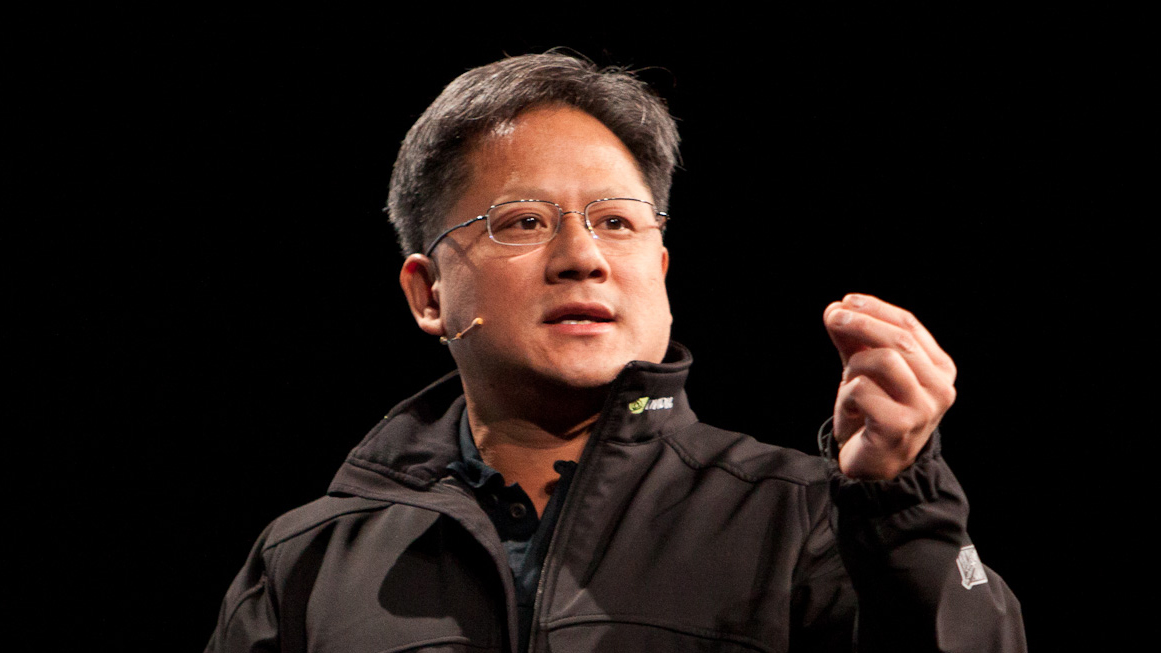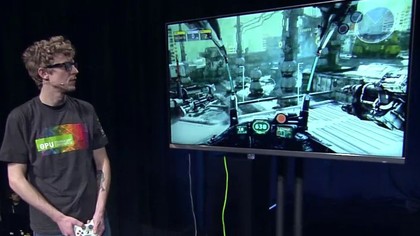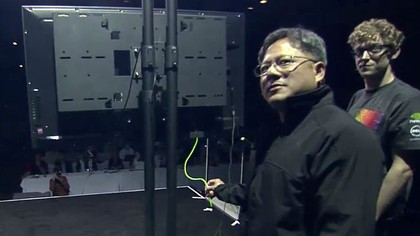Cloud gaming: fast to play, faster to start
Nvidia CEO Jen-Hsun Huang plans to replace GPUs yet still sell them

Sign up for breaking news, reviews, opinion, top tech deals, and more.
You are now subscribed
Your newsletter sign-up was successful
The GeForce Grid that's powered by Nvidia's new Kepler GPU is powerful enough to let you play the latest games on a TV – without a console – or to use professional compositing software from a tablet.
Does that mean you'll never need to buy a graphics card again? Not quite, Nvidia CEO Jen-Hsun Huang told TechRadar.
"There are still power users that require so much performance; because their work requires them to have dedicated capabilities I have every confidence that they'll continue needing GPUs. It's not likely they'll want to share!
"When you're designing a car when you're sitting at your desk, the idea of sharing your computer with someone is completely ridiculous, because time is money and you want to get that car designed. However once that car is designed and they need to show that to clients or to an ad agency so they can create a great commercial, in that case it totally makes sense to access that same data set (through the cloud)."

"You're still going to have your primary computing devices; this makes your primary computing device more convenient. You can now access whatever design, whatever data, whatever application that you want on enterprise desktops remotely and on mobile in a mobile way."
You'll still need your PC
Even with a cloud of GPUs behind it, a tablet won't be all you need all the time, and you'll actually use your PC more often. "All of us will have a primary computing device and all of us will have a remoting app like Citrix on all of our computing devices. So I'll have Citrix Receiver on my phone and on my tablet and on my thin and light notebook. I have three receivers remoting into my computer."
For accessing games on GeForce Grid game clouds like Gaikai, you don't even need a tablet; just a network connection and an H.264 decoder. "The green cable is your came console," explains Huang (pointing at the Ethernet cable running into the back of a TV screen). What else do you need?
Sign up for breaking news, reviews, opinion, top tech deals, and more.
"A pretty normal H.264 decoder on just about any mobile device. H.264 is quite universal. Anything that has what you need to decode YouTube - and at this point pretty much every device in the world can decode YouTube - you should be able to use GeForce Grid.
"Of course the faster your decoder is, the smaller the latency becomes. So it is possible to build a better device to receive GeForce Grid but almost every single device can do it; cable set-top box, iPhones, any Android device, PC, Mac…"
But can any device you play a game on really give you the performance gamers are used to from console games? Are GeForce Grid games going to be good for more than casual gaming? How has Nvidia managed to get games in the cloud to be fast enough to avoid latency and lag?
Huang says consoles aren't that hard to keep up with, actually, especially with the new GPU. "Whereas most consoles are now some six or seven years old, when a new game comes out it pushes that console right to the limit. There's no horsepower left and so as a result the visual quality and the performance is balanced so delicately that it gets you just enough frame rate but with the most realism they can squeeze in so the game feels as fresh as possible.
"However that same game running on our state of the art Kepler could run 60hz easily; so the frame time goes from 30 or 60 milliseconds down to 16 milliseconds."
Fast response time
The response time of the game cloud will be just five milliseconds, he says; and the GPU is now much more efficient than the one in your console. "Where we used to render into a frame buffer and that frame buffer was then copied back into the CPU for decoding and compression and streaming, our GPU now renders and when it's done rendering it's already streaming out right out of the GPU, so it saves a whole bunch of encoding time not to mention copy time.
"So between rendering things faster, compressing and streaming in parallel we've taken a couple of 100ms lag and reduced it down to something that's effectively the same performance and the same snappiness as a game console."

Games have to play fast enough for people to even consider cloud gaming, but once they do there are a lot of other advantages, Huang points out. "The benefit of cloud computing is convenience; it is the most convenient computing model we have ever known. It's wonderful that one day I have all my music on my Android and it's up in the cloud and the next day I buy a new Android device, I turn on my tablet and all my music shows up. All my photos show up. It is the most convenient model.
"Wouldn't it be great if you could have games the same way? Today you have to download those applications and the biggest apps you can download on mobile devices are - games. And they're larger and larger because the content is so rich; it's arguably so rich that it's hard for videogames to proliferate.
"As big as the gaming industry is, and growing still very fast, imagine how large it could be if you didn't have to download five or ten gigabytes of application every time, if you didn't have to wait eight or twelve hours for the download before you could enjoy it - you could literally click and you're instantly in the game."
Mary (Twitter, Google+, website) started her career at Future Publishing, saw the AOL meltdown first hand the first time around when she ran the AOL UK computing channel, and she's been a freelance tech writer for over a decade. She's used every version of Windows and Office released, and every smartphone too, but she's still looking for the perfect tablet. Yes, she really does have USB earrings.